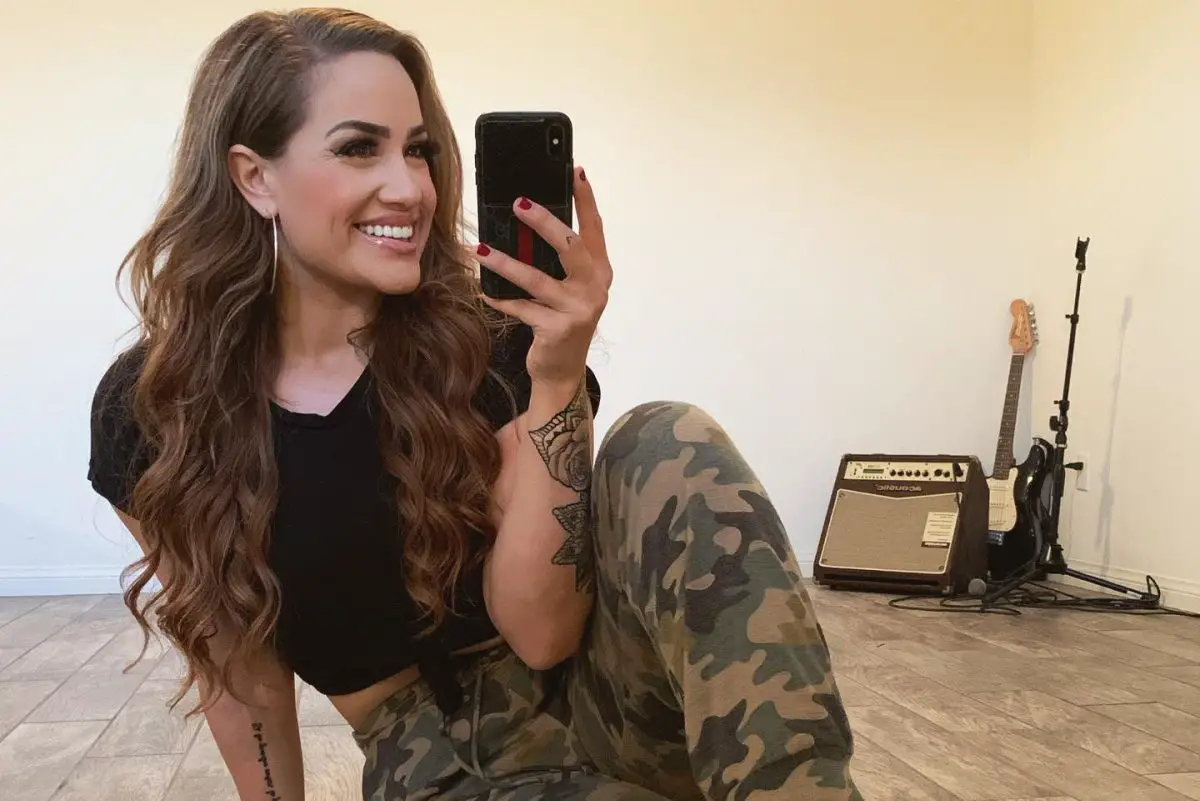“Come closer … Act like you’re crying.” Influencer and family vlogger Jordan Cheyenne cradled her 8-year-old son’s head close to her chest and angled her face toward the camera, eyes wide and frozen in feigned anguish. She and her family just learned that their new puppy is sick with a deadly illness, and Cheyenne decided to film their reaction to the news. Why would anybody choose to tape such an intimate moment? Money, of course. More tears mean more views.
“I am crying,” her son insists through genuine tears. She contorts her face into an imitation of grief. Another pose for the camera. “Go like this,” she orders, demonstrating how to position his hand. Her tone is business-like, as if she’s speaking to an employee rather than her own son. His pose isn’t quite emotional enough for Cheyenne’s liking. She barks a few more orders, ignoring his genuine tears.
“Mom, I’m actually crying,” he says quietly, as if he knows all too well that his mother has irreparably blurred the lines between fiction and reality. The clip ends here; there is very little evidence that this video even exists, as the influencer appears to have done her best to have it scrubbed from the internet’s collective memory. This moment was never meant to make it to the final cut. One mistake during the editing process resulted in well-deserved controversy.
You might be thinking, “Wow, if I was her, I would never show my face on YouTube ever again.” Think again: Jordan Cheyenne is still posting videos to this day. After a half-hearted apology video where she refers to the moment as a “blooper,” Cheyenne returned to her platform and continued churning out content — except she no longer shows her son. Did she learn any sort of lesson? Probably not. If she understood how social media had completely poisoned her sense of reality, if she felt true remorse over that horrible moment, she would have permanently deleted her channel and committed herself to becoming a more present mother. But she didn’t, because, as has been proven time and time again, disgraced family vloggers never learn their lesson.
As social media becomes more ubiquitous, many have begun to question the ethics of posting pictures and videos of your children for millions of people to see. It raises serious questions about consent and the right to privacy. A child cannot truly conceptualize what it means to have their childhood immortalized in monetized videos for hundreds of thousands (if not millions) of strangers to see. Children like Jordan Cheyenne’s are surely in for years of therapy as a result of what can only be referred to as emotional neglect.
In a Glamour Magazine article about the rise of “sharenting,” lecturer Emma Nottingham from the Center of Information Rights at the University of Winchester said, “In the case of family vloggers on YouTube, the family home is no longer a private place. It’s entirely unregulated and very lucrative with families signing sponsorship deals and receiving gifted items. If you have children in these videos to what extent is it exploitation — not just in terms of their privacy but also in terms of labor?” The typical family dynamic is thrown out the window in the homes of families like The Ace Family or The Labrant Fam. Mom and dad play the role of director, boss and manager, all without the informed consent of their children.
Over time, these influencers stop perceiving their children as children and instead view them as accessories, costars in the staged drama that is their life. The children are props to be emotionally and physically manipulated depending on what the “scene” requires. When genuine moments occur, the intimacy and growth that could have occurred between parent and child is interrupted by a camera lens, a ring light. There is no context in which this is appropriate. No rational parent should want this for their child. At this point, “family vlogger” is just another word for con artist.
Typical family vloggers are very clearly in it for the money. They live in lavish California McMansions, drive Teslas and dress in chic monochromatic outfits, like an army of Kardashian wannabes. However, not all family vloggers are materialistic. Some exist on the polar opposite end of the spectrum. Meet Alice Ellani, owner of the popular TikTok account @alicellani, where she posts short daily vlogs about her life as a self-described “vegan freebirth mama” with her toddler Fern and newborn baby Sage.
She practices gentle parenting and “unschooling,” posts grocery hauls of carts filled to the brim with raw fruits and kombucha, and recently performed her own “lotus birth,” which involves leaving the placenta attached to the baby for multiple days after the birth until it eventually dries out and falls off. Lotus births have not been well-researched, but Healthline wrote, “Once out of the womb, blood stops flowing to the placenta. At this point, the placenta becomes dead tissue prone to infection. Because the placenta is still attached to the baby, an infected placenta can infect the infant. Additionally, the baby risks injury of the cord accidentally being ripped away from their body. This is known as cord avulsion.” While lotus births may not be inherently dangerous, it is dangerous to promote this practice as completely healthy and beneficial without any severe risks attached.
Much of her content focuses on “informed consent” when it comes to making medical decisions. After several traumatic experiences with doctors, Alice lost all faith in the medical system. I am sympathetic to that, but it becomes dangerous and misguided when one preaches to a sizeable audience that they should ignore all medical advice, do their own research and free birth babies in their bathtub without the expertise and guidance of a midwife or doula. Alice Ellani has built her platform around informed consent and bodily autonomy while filming her toddler for hundreds of thousands of people to observe and comment on. The cognitive dissonance is mind-blowing.
For months, Alice and Fern’s outings were reproduced by others and made into memes on TikTok. One TikTok says, “I would literally pay a hundred dollars just to watch baby Fern take a single sip of a Baja Blast.” People were digging up the details of her husband’s place of work, their in-law’s social media handles and other private information. One has to ask why she has continued posting. What is there to gain besides money? If Alice and other creators who allegedly champion consent and bodily autonomy lived by the values they say they do, Fern would not be the main subject of Alice’s TikToks. Creators like Alice are almost more insidious than their materialistic counterparts; she uses the aesthetic of freedom and choice but discards all of those values when it comes to the rights of her children. Children like Fern have no voice.
There is no way to help a toddler fully understand the long-term consequences of being posted on TikTok, Instagram and YouTube. There is no way to receive enthusiastic consent, to create “family content” ethically, to film your child for entertainment purposes without risking their future health and well-being. Family vloggers must decide whether making money outweighs the damage they are doing to their children’s psyche. Unfortunately, most family vloggers have proven over and over again that they will always choose wrong.

















